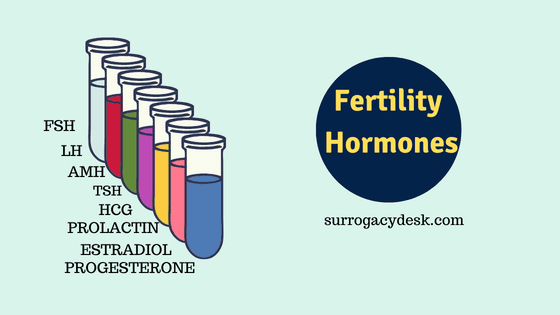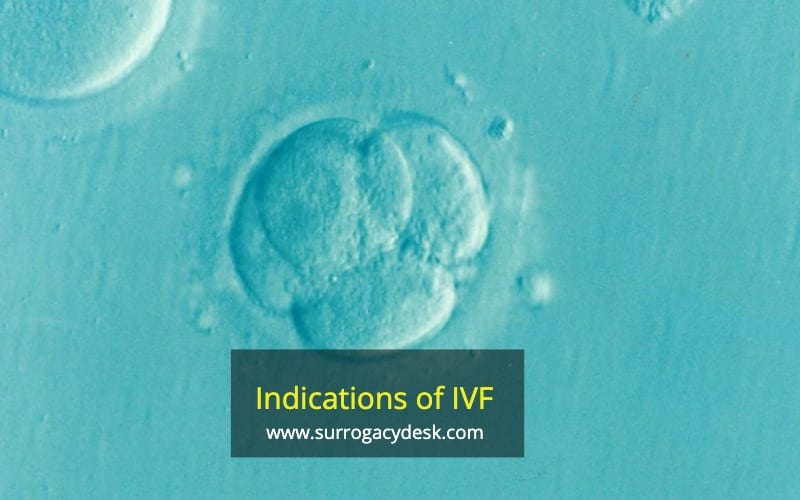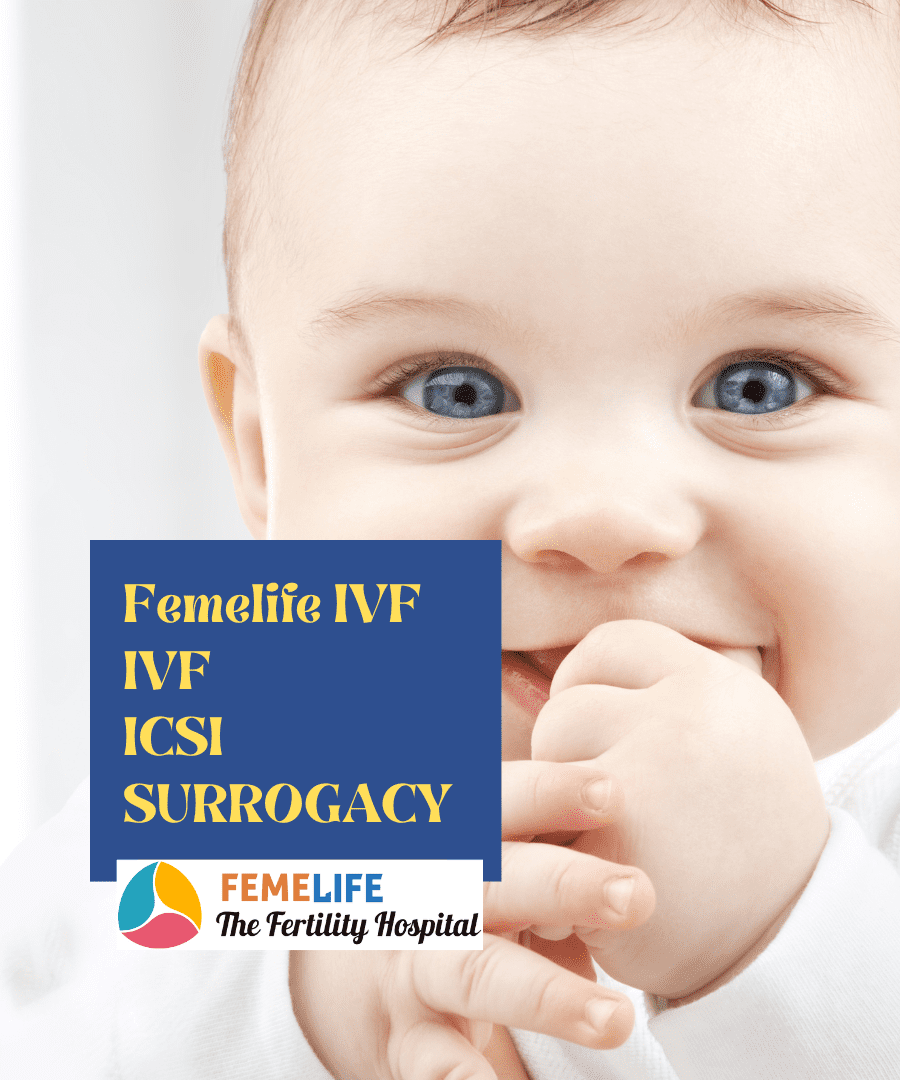Fertility hormones are crucial since they help manage the IVF procedure and increase the patient’s likelihood of conceiving successfully. The IVF hormones that the fertility doctor prescribes help manage the cycle since the woman undergoing treatment needs to modify her menstrual cycle in order to allow for timely egg maturation and egg retrieval.
What are fertility hormones?
A major part of the IVF process involves hormones. Women initially turn to this method of conception when they are unable to become pregnant naturally due to female infertility. This indicates that there is a problem with their body’s reproductive system, which prevents them from ovulating and subsequently producing healthy eggs.
The appropriate operation of the reproductive system, which is fueled by the pertinent hormones, in turn, results in healthy egg production in a female body. Because of this, an IVF cycle needs a number of medications to start ovarian stimulation and prevent early ovulation in order to promote the creation of eggs that can then be fertilized in vitro. In other words, combining hormones and taking fertility drugs as part of in vitro fertilization helps delay early ovulation and mimics a woman’s normal reproductive process. Hence, whether you’re having intracytoplasmic sperm injections or standard IVF, you can accomplish the objective of ovulating to generate healthy eggs.
The process of IVF therapy and clinical pregnancy rates are greatly influenced by hormones; in fact, the role of hormones in IVF is one of the most important. Hence, if you’re considering beginning your IVF adventure, be careful to learn more about the hormones administered during IVF so that you are comfortable with what your body or your partner may experience.
Which hormones can influence IVF treatment?
The female body’s reproductive system is intricate; different hormones are involved, each of which has an impact on a woman’s capacity to conceive and become pregnant. The process of IVF and the health of female reproductive systems are greatly influenced by hormones such AMH, LH, FSH, progesterone, estrogen, prolactin, and TSH. Let’s go into more detail about the hormones that are important for IVF.
1. AMH (Anti-mullerian hormone)
The development of the baby’s reproductive organs is actively aided by anti-mullerian hormone (AMH). As a result, the amounts of AMH in males and females differ. In fact, males with high AMH levels are prevented from growing female reproductive organs. In turn, AMH levels in newborn females are low. AMH is created in the ovaries and is present in the bodies of adult women as well. It aids in the production and release of eggs. Hence, the level of AMH in an adult female might reveal a lot about the woman’s ovarian reserve. Knowing your reproductive lifespan is crucial because AHM declines in women beyond the age of 25, and AHM is a wonderful tool for this.
2. LH (Luteinizing hormone)
Another hormone that has a significant impact on people’s reproductive health is luteinizing hormone (LH). LH stimulates the reproductive processes in both men and women. LH encourages the synthesis of testosterone in men, whereas a shift in the hormone’s level encourages the occurrence of ovulation in women. Moreover, LH triggers a response from the female body when a pregnancy needs to be sustained. This suggests that the hormones needed to support pregnancy will be released. Consequently, LH stimulates the development of the corpus luteum, a tissue found in the female ovary. Its structure aids in the early stages of pregnancy by promoting progesterone production. When considering starting IVF, it’s critical to understand whether your body’s level of LH is normal because this hormone’s levels might rise with aging. This indicates that you must submit to an LH test, which calls for a blood sample.
3. FSH (Follicle-stimulating hormone)
The growth hormone called follicle-stimulating hormone (FSH) is what causes the ovaries to produce mature eggs. It is also the hormone that can be injected and is used during an IVF cycle to treat infertility. The pituitary gland, which is found in the brain, also produces LH and FSH. When a woman matures, her brain can detect changes in her estrogen levels. In an effort to raise the level of estrogen by encouraging hormone production in the ovaries, this causes the production of FSH to be stimulated. As a result, even after menopause when there are no longer any eggs, the level of FSH in a woman’s body keeps rising with age. On the third day of your menstrual cycle, an FSH test is performed as part of the IVF procedure to see if your baseline level of the hormone is normal (>9). If it increases (9–20), it indicates that your ovarian reserve is inadequate. The response of your body to fertility drugs can also be predicted by the level of FSH. The likelihood that your body will respond to ovarian stimulation with fertility medicines is incredibly low when the level of FSH on day 3 of your menstrual cycle is more than 20. Yet since every patient is treated uniquely, it’s best to speak with your reproductive specialist before making any assumptions.
4. Progesterone
Progesterone is produced by the ovaries and levels rise during ovulation. The purpose of this hormone is to get the endometrium, which lines the uterus, ready for pregnancy, should that happen. In the absence of this, progesterone levels fall and the menstruation begins. In reality, this hormone controls how well the lining will let the egg adhere to it during fertilization. Progesterone production during pregnancy may continue for 8–10 additional weeks to guarantee that mature eggs form and the embryo develops safely. In order to stop this decline and enhance the uterine lining’s preparation, progesterone is taken during your assisted reproductive technology and IVF trip. This improves the likelihood of successful implantation and aids in the embryo’s post-transfer development.
5. Estrogen


The follicles of the ovaries create the female sex hormone estrogen, which is a component of the estradiol hormone. It is in charge of expanding and maintaining the uterine lining, especially thickening it over time following fertilization to facilitate a safe pregnancy. Throughout the menstrual cycle, estrogen levels fluctuate, reaching a peak during ovulation. And as compared to an earlier age, estrogen levels are at their lowest after menopause.
6. Prolactin
Since the prolactin hormone is in charge of producing breast milk, it is produced by pregnant and breastfeeding women. Although it can appear advantageous to have increased prolactin when attempting to get pregnant, this is not a good sign.
The uterine lining and ovarian follicle formation are affected by high levels of prolactin, which is the cause. Prolactin inhibits the woman’s ability to procreate while she is producing milk. Hence, high prolactin levels in women who are not pregnant or nursing indicate a hormonal imbalance. Before getting pregnant, a woman’s prolactin level should be under 25 ng/mL. If your level is greater, you can be given medication to reduce prolactin and increase your chance of getting pregnant.
7. TSH (Thyroid stimulating hormone)
Another hormone that has an impact on a woman’s reproductive system and capacity to conceive is thyroid stimulating hormone (TSH). In particular, healthy thyroid hormone levels guarantee successful fertilization and prevent the woman from developing polycystic ovary syndrome, ovarian malfunction, or other complications during pregnancy. So, before beginning IVF, females may need to do a TSH test to check their hormone levels. The test, which requires a blood sample, can be completed any morning. For females who are not pregnant, a normal TSH level is 5.0 mIU/L.
8. HCG (Human Chorionic Gonadotropin)
HCG, also known as human chorionic gonadotropin, is frequently referred to as the pregnancy hormone. Because it is created throughout a clinical pregnancy and is highest in the early stages, this is the cause. When you take a pregnancy test, this hormone also indicates that you are pregnant. This hormone aids in the thickening of your uterine lining and the embryo’s development following embryo transfer, along with other hormone injections.





